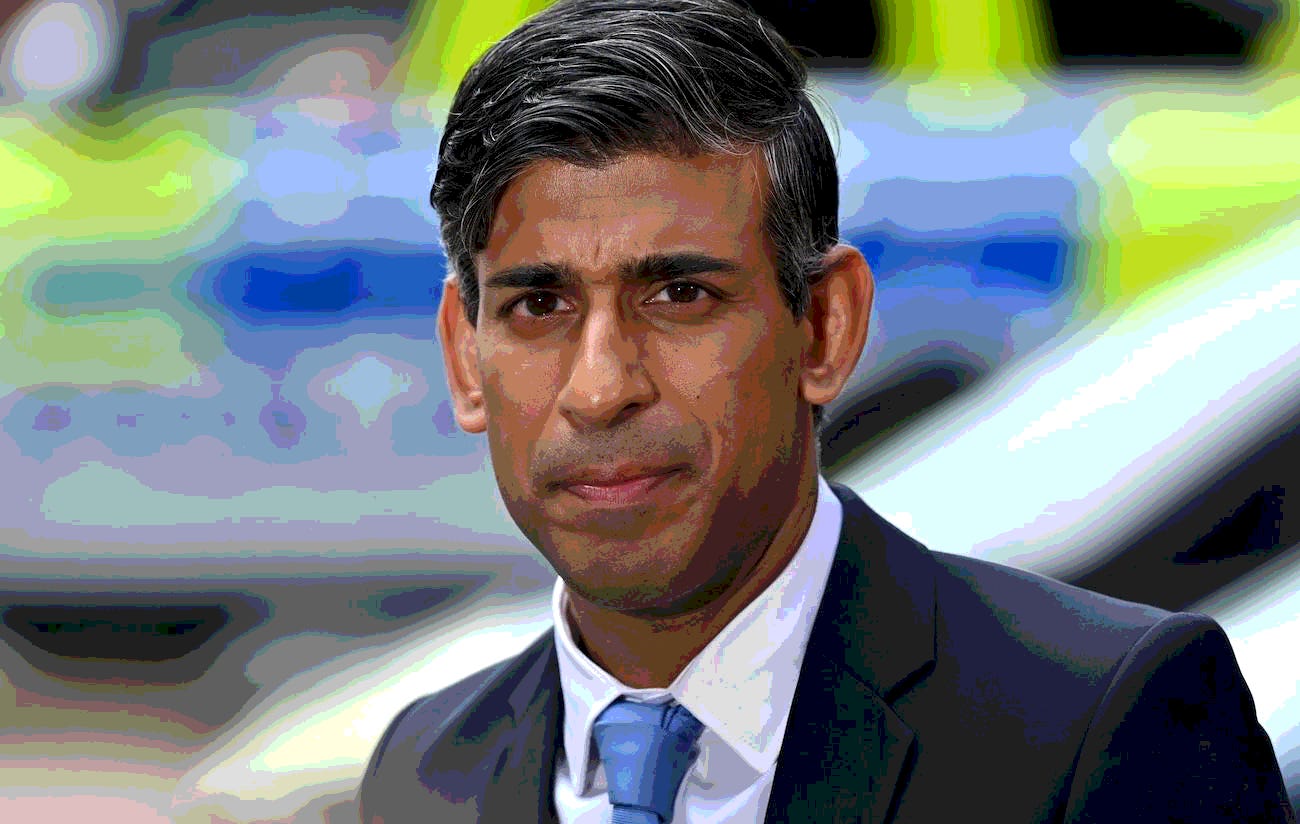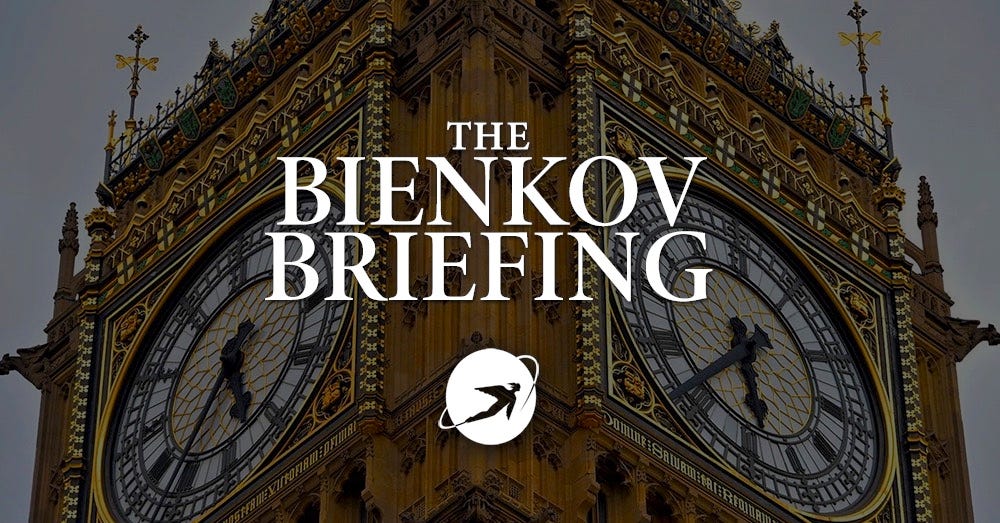Rishi Sunak’s Government is ‘Institutionally Corrupt’ And It's Getting Worse, Say Voters
Exclusive new poll finds voters believe Government corruption has got worse under the Conservatives
In this week’s Bienkov Briefing:
VOTERS SAY SUNAK’S GOVERNMENT IS “INSTITUTIONALLY CORRUPT”
UK SLAMMED FOR FAILING TO COMPLY WITH ANTI-CORRUPTION GUIDELINES
SHAPPS UNQUALIFIED TO BE DEFENCE SECRETARY, SAY VOTERS
JUST 3% OF VOTERS BELIEVE SUNAK IS BRINGING DOWN NHS WAITING TIMES
VOTERS BACK NEW WEALTH TAX ON BRITAIN’S RICHEST
A majority of voters believe that Rishi Sunak’s Government is “institutionally corrupt” according to an exclusive new poll for Byline Times.
The Prime Minister promised to lead a Government based on “integrity, professionalism and accountability”.
However, according to our poll 53% of voters told pollsters We Think that they agreed with the statement that the UK Government is now ‘institutionally corrupt’, with just 15% disagreeing.
The poll also found that most voters believe that corruption in Government has got worse in the UK over recent years.
57% said they believed the level of corruption in Government had increased in their lifetime, with only seven per cent saying it had decreased instead.
Earlier this year the UK achieved its worst ever level in Transparency International’s Global Corruption Perceptions Index, with only four other countries – Qatar, Myanmar, Azerbaijan and Oman – seeing their rankings decline by as much.
Our poll findings come after Sunak’s Government was also criticised by an international body for failing to implement required anti-corruption measures.
The Council of Europe’s Group of States against Corruption (GRECO) which the UK is a member of, said in a report last week that the UK was “not in sufficient compliance” with all of its recommendations, after it failed to fully implement a series of measures designed to tackle corruption in its Government and policing bodies.
In particular they singled out Sunak’s refusal to impose formal sanctions on ministers who breach post-Government appointment rules when leaving office in order to enter the private sector.
In recent years multiple Government ministers, including former Prime Minister Boris Johnson have been criticised for ignoring existing rules.
As Byline Times reported this week, Sunak’s Government is also expected to next week reject a series of amendments to its Economic Crime and Corporate Transparency Bill when it returns to the House of Commons.
The series of amendments, which were passed by the House of Lords in order to toughen up the Bill’s attempt to root out dirty money from the UK, are due to be thrown out by the Government.
Sunak was also criticised on Thursday for appointing Grant Shapps as his new Defence Secretary, despite historic questions over his honesty and integrity as an MP.
In 2015 he was forced to admit that he had used a fake name in order to pursue a secret second career as a ‘millionaire web marketer’ running a get-rich-quick scheme.
This activity was alleged to have continued after he first became an MP in 2005.
However, Shapps denied the claim for three years and even threatened legal action against one of his constituents for making it, before his ‘Michael Green’ pseudonym was ultimately exposed and confirmed by the Guardian.
The appointment also drew criticism from inside Sunak’s own party with Conservative MPs briefing that Shapps was too inexperienced for the job, not having been known for his interest in defence issues prior to his appointment.
Asked by We Think on Thursday whether Shapps was qualified for the job of Defence Secretary, just 15% of voters told the pollsters that they believed he was, with most voters (54%) unsure either way.
Waiting in Line
Rishi Sunak claimed earlier this year that “we are cutting waiting lists”. However, in reality, overall waiting times have continued to rise.
This has been noticed by voters. According to our poll 73% of Brits say they believe waiting lists are getting longer based on their own experience, with just 3% buying the Prime Minister’s claim that he is actually bringing them down.
Pushed on this last month, Sunak sought to blame the continued rises on doctors and nurses going on strike, saying “If you look at what happened we were actually making progress… What happened? We had industrial action, we’ve got strikes”.
However, our poll finds voters do not buy this explanation. Asked who was to blame for rising NHS waiting lists, 67% of voters blamed the Government, with just 17% blaming trade unions instead.
Even Conservative voters were more likely to blame ministers than striking workers, with 46% blaming the Government compared to just 33% blaming trade unions.
A Wealth of Support for Taxing the Rich
Keir Starmer’s Labour party last week ruled out imposing any new wealth taxes if it forms the next Government.
Supporters of the strategy suggest it is an attempt to put the party back in line with the average voter, who they believe oppose tax rises.
However, our poll finds broad support for the imposition of higher taxes on Britain’s wealthiest people.
According to our poll 68% of voters would back a new wealth tax on the top 5% of wealthiest Brits, with even a majority of Conservative voters (54%) backing such a move.



